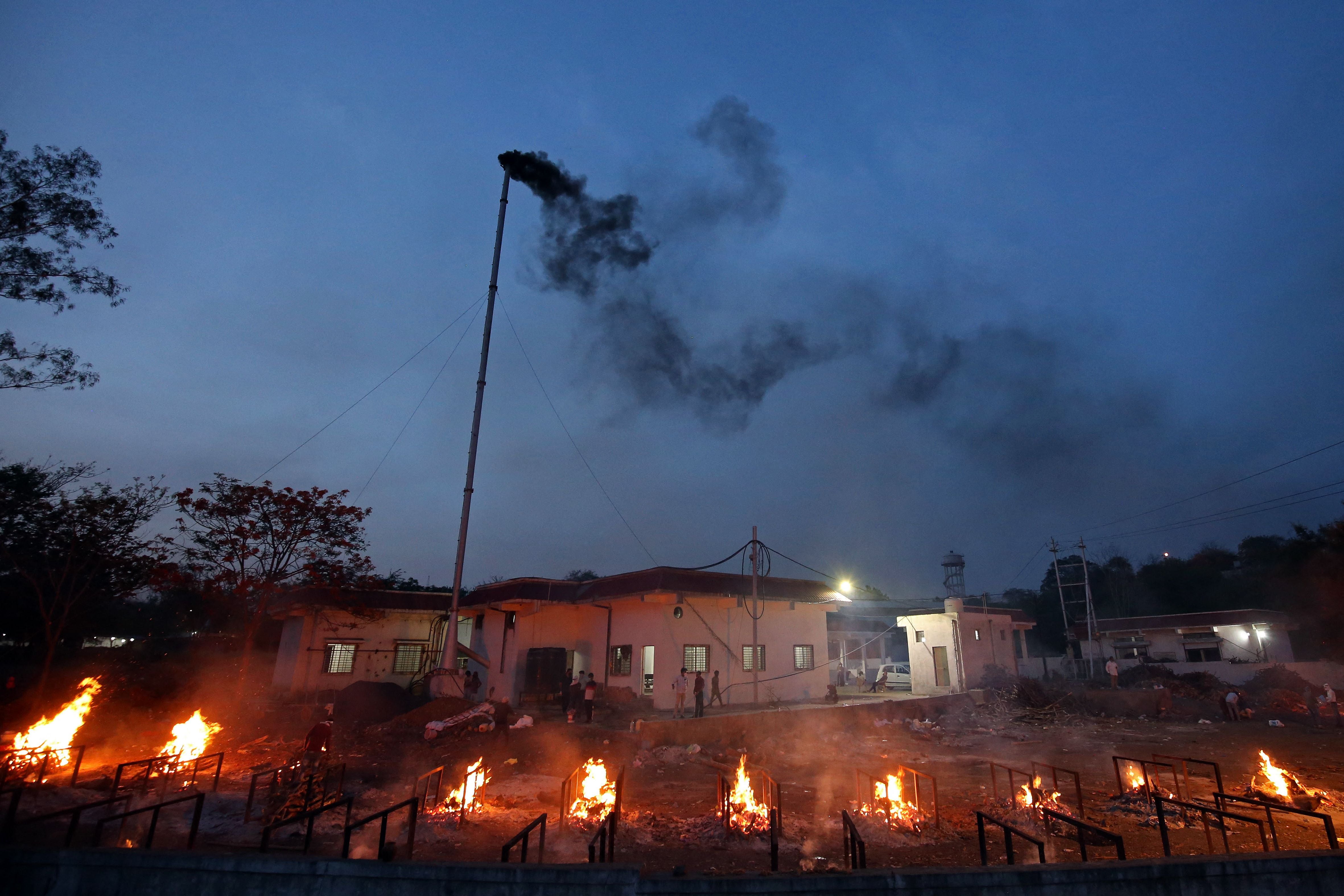Indian city to build park with 21 truckloads of uncollected ashes of Covid victims
The park will be built on 12,000 square feet of land in a crematorium

Your support helps us to tell the story
From reproductive rights to climate change to Big Tech, The Independent is on the ground when the story is developing. Whether it's investigating the financials of Elon Musk's pro-Trump PAC or producing our latest documentary, 'The A Word', which shines a light on the American women fighting for reproductive rights, we know how important it is to parse out the facts from the messaging.
At such a critical moment in US history, we need reporters on the ground. Your donation allows us to keep sending journalists to speak to both sides of the story.
The Independent is trusted by Americans across the entire political spectrum. And unlike many other quality news outlets, we choose not to lock Americans out of our reporting and analysis with paywalls. We believe quality journalism should be available to everyone, paid for by those who can afford it.
Your support makes all the difference.The Indian city of Bhopal has decided to build a park at a crematorium using the ashes of Covid-19 patients which have not been collected by victims’ families.
The park will be made at Bhadbhada Vishram Ghat, one of the biggest crematoriums in the city, on 12,000 square feet of land.
As the number of Covid-related deaths surged during the peak of the second wave, the crematorium had reported an increase in the number of uncollected urns which contained ashes of coronavirus victims.
Mamtesh Sharma, the crematorium's management committee secretary, told news agency PTI that more than 6,000 bodies were cremated there under Covid protocols during a period of three months — from 15 March to 15 June — and most of the family members collected the bones but left the ashes.
21 truckloads of ashes were left at the crematorium so they decided to build a park rather than release all of it into a river, thereby posing an environmental risk.
Bhopal, which is the capital of Madhya Pradesh state, reported 13 new infections on Sunday, taking its overall case tally to 123,169. The number of fatalities in the city stands at 972, according to government data.
A curfew was imposed on the city in April as the number of infections surged, and the unlocking process only began in June.
Questions have been raised over the official count as reports claimed data from crematoriums contradicts government’s numbers. The New York Times reported that while the official death toll reported by Bhopal officials was 41 over 13 days in mid-April, its survey from cremation and burial grounds revealed more than 1,000 deaths during the same period.
The Madhya Pradesh government has dismissed the allegations that deaths have been under-reported, with chief minister Shivraj Singh Chouhan saying that the last rites of suspected Covid-19 positive patients were also performed as per coronavirus protocols. He said that patients also died due to other causes.
At the Bhadbhada Vishram Ghat, a land surface has been made using the ashes, soil, sand and other things for the park, Mr Sharma said.
The creation of the park is also seen as a way to commemorate the lives lost to Covid-19. Family members of those who died of Covid-19 will be encouraged to take part in a drive through the plantation, the crematorium’s management committee president Arun Choudhary told PTI.
Join our commenting forum
Join thought-provoking conversations, follow other Independent readers and see their replies
Comments